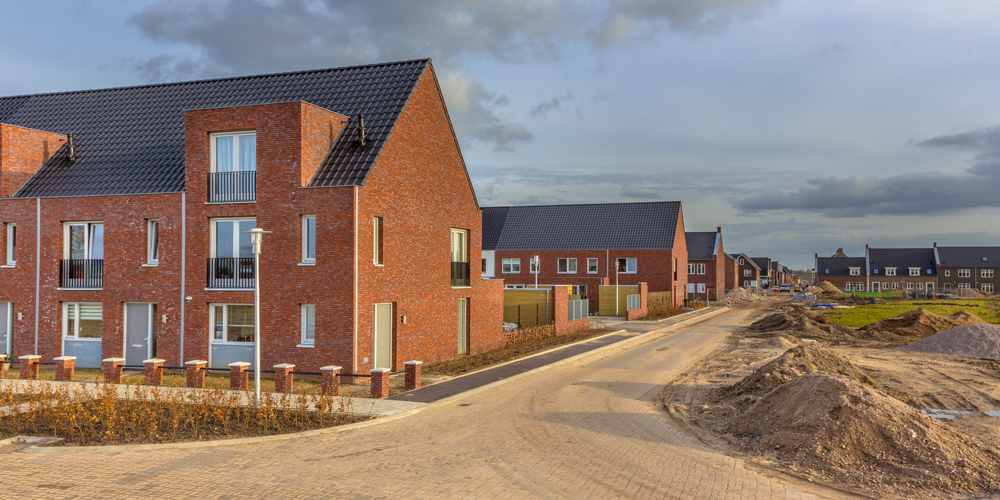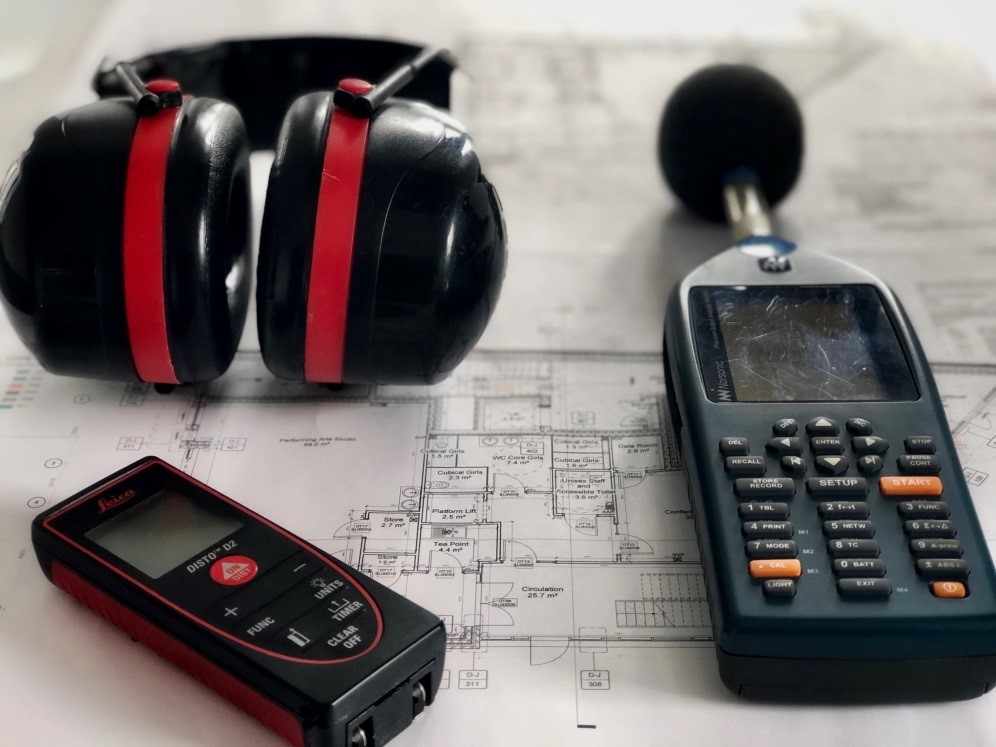
Sound Insulation Testing Information
Sound Insulation Testing Information for Clients
Sound insulation testing or pre-completion sound testing must be carried out on new build dwellings as well as on converted dwellings. The dwellings will either require an Airborne sound test or an Airborne and Impact sound test. Airborne tests are carried out on separating walls between habitable rooms of dwellings such as houses or flats. Airborne and Impact sound tests are carried out on the separating partition floors between habitable rooms of flats. All sound insulation testing must comply with Approved Document E of Building Regulations.
All of our sound insulation tests are carried out in accordance with ISO 140-4 and ISO 140-7 and we are a UKAS accredited test laboratory, so you can be safe in the knowledge that all our sound testing is carried out to the highest standards in compliance with ISO 17025/2017.

New build properties need to meet the requirements of DnTw+Ctr ≥45dB (more than) and LnTw ≤62dB (less than). Conversion properties need to meet the requirements of DnTw+Ctr ≥43dB (more than) and LnTw ≤64dB (less than).
APT Sound Testing test engineers have over 15 years of experience in sound insulation testing throughout London and the South East. We are experts in acoustic consultancy as well as the testing, having completed hundreds of acoustic design projects jobs throughout the UK. We take pride in offering all of our clients a personal and comprehensive acoustic service which is reflected in our positive google reviews and testimonials. (See our positive customer testimonials here)
We provide a turnkey acoustic solution for consultants, project managers and developers from the design stage of developments, right through to the final precompletion testing, ensuring our clients have peace of mind when it comes to the acoustics on their projects.
What Is Sound Insulation Testing for Approved Document E?
As we have explained, Sound insulation testing must be carried out on new build dwellings as well as on converted dwellings. The dwellings will either require an Airborne sound test or an Impact sound test depending on the dwelling type.
Here is a brief explanation on the two types of sound tests:
Airborne Sound Tests – Airborne tests are carried out on party walls and floors/ceilings between dwellings. Airborne sound testing measures levels of sound transmitted through the air. We use a Norsonic loudspeaker that produces white noise on one side of the partition, and measure with a decibel meter on the other side how much sound is lost through the partition.
Examples of airborne noise that you usually expect to find in dwellings are people talking, radios and televisions.
Impact Sound Tests – These are only carried out on separating floor/ceiling divides between dwellings – usually on flats. An impact test measures the levels of noise transmitted directly through a separating construction as a result of impact noise, which emulates footfall noise from above. To produce footfall noise we use a tapping machine, which drops metal hammers onto the floor to create impact noise. We then measure the amount of sound that passes through the partition with a decibel meter in the room below the floor partition.
All testing should be carried our between ‘habitable’ rooms. Habitable rooms can be lounges, bedrooms, studies, living rooms and kitchens. Test findings are fed into an Approved Document E complaint report that will be then sent to the client to pass on to the tasked building control body. This sound test report should always be acceptable to Building Control and will help you to get your development signed off.
For further information, please see our frequently asked questions section, or to prepare for your sound testing please download our sound test checklist.
APT Sound Testing is UKAS accredited to undertake Sound Insulation Testing under ISO/IEC 17025:2017. As a UKAS accredited laboratory we are required to attain the highest standards at all times.
It is common knowledge that the assessment criteria used by UKAS are internationally recognised as being the best indicators of accurate, impartial and consistent performance. UKAS accreditation demonstrates an organisation’s competence, impartiality and performance capability against internationally recognised standards.
For more information on our Acoustic Design services and Sound Testing services in London, please give me a call direct on 07775 623464 or email us at info@aptsoundtesting.co.uk